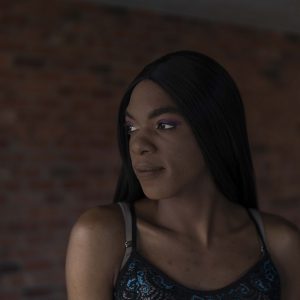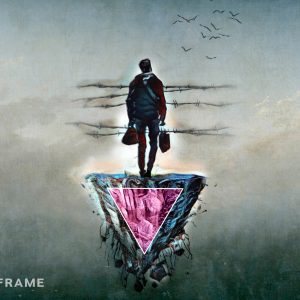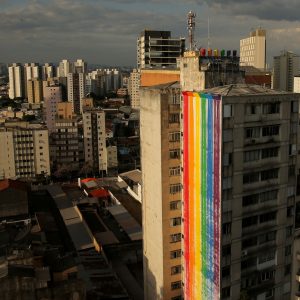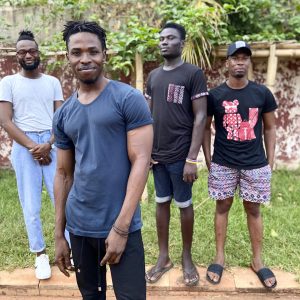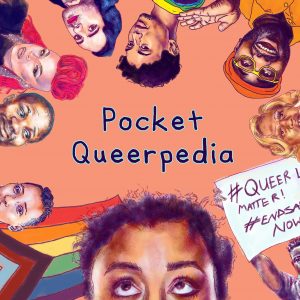Face to face with the LGBTQIA+ activists of Namibia
The personal stakes are high for the activists – some willing, others reluctant – behind the historic reckoning for LGBTQIA+ rights in the country.
Author:
17 September 2021

This year marks a historic anniversary for LGBTQIA+ rights in Africa. On 30 November, South Africa celebrates the 15th year of its Civil Union Act, which granted members of the LGBTQIA+ community marriage equality.
The legislation made South Africa the fifth country in the world to enact this milestone, but it is the first and last country in Africa to do so. While legal rights are constitutionally enshrined, discrimination and danger continue to challenge the full experience of these rights in the country. And progress towards LGBTQIA+ equality has faltered, been non-existent, or in the worst cases regressed on the rest of the continent.
In Namibia, queer people are fighting for the hope that 2021 will mark a consequential leap in their fight for constitutional emancipation.
Related article:
This year alone, the country has seen an unprecedented number of LGBTQIA+ rights-related cases brought before its high courts. Almost 10 cases have been on the docket in various stages of completion as LGBTQIA+ Namibians, activists and allies challenge what they call state-sanctioned homophobia.
Alongside these cases, there has been significant movement in the streets and media along with political support for equality in Namibia. Minister of Justice Yvonne Dausab is leading the charge to scrap the colonial-era “sodomy law” and has called these court cases a watershed moment for the country. She says they offer an “important trajectory in our human rights paradigm at the moment,” according to The Namibian Sun newspaper.
The stories of the activists behind the reckoning for LGBTQIA+ rights in Namibia reveal the pain, love, fear and hope that drives their activism.

South African Daniel Digashu and his Namibian husband Johann Potgieter, who have a son Lucas, are suing the government to have their South African marriage recognised by the state. After years of waiting, their landmark case was heard on 20 May. They are now waiting for the judgment.
“We decided to move to Johann’s homeland so that we could spend time with his family. We wanted our kid to know his side of the family, his grandparents. When my work permit, visa and all other applications were rejected, we didn’t really have a choice but to sue. We had uprooted our lives, our home, our son, our dogs. Our kid was already in school. We didn’t have a choice. Whether they believe it or not, we are a family unit,” says Digashu.
“I was not going back to South Africa because they rejected my visa.
“When we opened the case, we had no idea that it was so much bigger than just us. And how much it would cost us. We’ve lost a lot of money and assets, but what I’ve really lost is my career, my ability to work. Right now, I’m just hanging in the air, not knowing the way forwards or backwards.
“Personally, my two boys are just such rocks. I couldn’t have stayed this long had it not been for them. That keeps me going. That, and knowing how many more people are fighting for exactly what we’re fighting for.”

Namibian Annette Seiler and her German wife Anita Seiler-Lilles planned to relocate and retire in Annette’s homeland. They sued the government after the Ministry of Home Affairs and Immigration rejected Seiler-Lilles’ application for permanent residence because it does not recognise their German same-sex marriage. Their high court case for marriage recognition was combined with the Digashu-Potgieter case heard on 20 May.
“There are honestly so many more interesting activities we imagined pursuing in our retirement, rather than being in court fighting the Ministry of Home Affairs and Immigration,” says Seiler. “On the one hand, we feel that we are in the right. But on the other hand, we fear that the judges might decide against us. It’s not a sure win. For example, when we have spoken to government employees about our case, they openly trampled on our dignity. It’s incredibly distressing. We have a lot to lose.
“We are not only fighting for Anita’s right to live in Namibia. Should we lose, we’ll both have to leave. I am a Namibian, who then would have to live in exile just because I love a woman.
Related article:
“We, the gays and lesbians living in Namibia, are normal people. We just fall in love with people from our own sex. That’s the only difference to heterosexuals. In every other sense we are like all other people. We laugh, we cry, we work and eat and sleep. Sometimes we are sad, sometimes we are happy. Most of the time our sexuality is not even in the forefront of our minds.
“For us, marriage is something very fundamental and important. It strengthens the bond we have. There are many LGBTQIA+ Namibians who feel the same and want to marry, so why not? Gay rights are human rights. It is not a luxury, it’s basic.”

Omar van Reenen is a co-founder of the Namibia Equal Rights Movement and a civil rights activist.
“My work is inspired by my grandfather. He built the first hotel for coloured [people] in Namibia, during apartheid. It was a place of activism, community, a safe space. I grew up knowing that story and I felt [the] universe sent me here to fight for social justice like my grandfather did,” says Van Reenen.
“Racial justice was the civil rights issue of my parent’s generation, LGBTQIA+ rights is the civil rights issue of our time. And we will not stop until we achieve full constitutional emancipation. The homophobic laws that oppress us were written by the colonisers. We need to repeal them if we really want to decolonise.
Related article:
“It’s hard to see the government misusing my constitution to invalidate my dignity, to have your existence marginalised, to be told that you don’t belong. It’s hard to be called sick, demonic, satanic. It’s hard not to be able to walk into a healthcare centre without fearing discrimination. It’s hard knowing that I can’t marry the person that I love in my country because there’s no recognition of my love.
“There were a lot of queer people at the forefront of the fight for our independence, they were very much a part of Swapo [ruling party the South-West Africa People’s Organisation]. But since then, the pursuit of racial equality superseded the pursuit of queer equality. Swapo enshrined racial and women’s rights in post-independent Namibia, but LGBTQIA+ voices, especially lesbians, were subjugated in the formulation and rebuilding of our republic after independence. It’s not only a betrayal, but also embarrassing to their notion of one Namibia, one nation. A Namibian house that’s inclusive of all.”

Mercedez von Cloete is a media personality and advocate for human rights who is suing the Ministry of Safety and Security for the transphobic violence she experienced at the hands of the police in 2017. The trial hearing concluded on 16 May and she is awaiting the judgment.
“A few years ago, I was unlawfully detained and brutally assaulted, repeatedly. This was not the first time that something like this had happened to me, but I promised myself that I would not allow it to persist. And so, for the last four and a half years I’ve been fighting for justice and to hold the police accountable,” says Von Cloete.
“I always imagined activists to be angry people with posters, shouting and protesting on the streets. As someone who is in no way confrontational, it didn’t look anything like me. I’ve since learned that leaving injustices unchecked is an injustice in and of itself. I’ve realised that activists are really just people who no longer accept the things they ‘cannot change’ but instead seek to change the things they cannot accept.
Related article:
“I feel we need to look past gender and genitalia or who and how we love to live in a just, accepting and equal society.
“I now consider myself an advocate for change, for all the trans and gender-diverse people who don’t have the agency or support to ensure their rights are upheld. Or who are denied certain fundamental services, rights, protections and freedoms because of who they are. For those who experience continual harassment and police brutality, something which has remained un-addressed for far too long.”
“Personally, the emotional, psychological and physiological stress cannot be quantified. I’m still healing and just hoping that in November, when the final judgement is made, justice will prevail.”
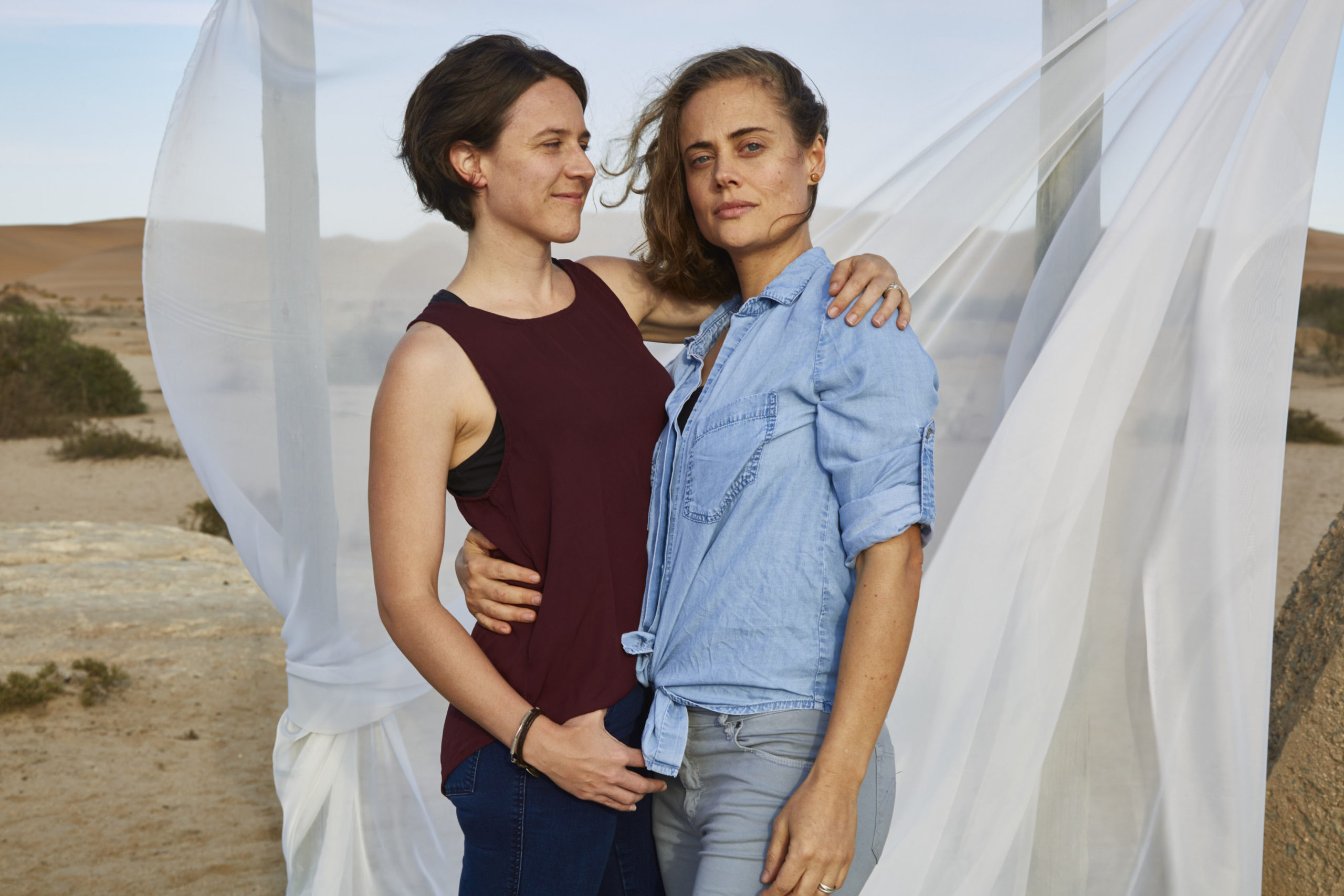
South African Jennifer du Toit-Henneke and her Namibian wife Pascale du Toit-Henneke are suing the Namibian government for their constitutional right to live and work in Namibia, which is Pascale’s homeland.
“I’m an unlikely activist,” says Jennifer du Toit-Henneke. “I’d never considered myself to be someone on the forefront pushing back on social issues. While I have always believed in righteousness, being an activist has never been central to my identity. Putting a legal challenge to the state and potentially launching ourselves into the spotlight on a very controversial issue… it’s very daunting.
“We didn’t even have the luxury to ready ourselves for this. We were pretty much forced to because the Ministry of Home Affairs wanted to kick me out of the country, knowing that I wouldn’t be able to get back in. Back to my wife and our home.
Related article:
“It’s hard coming from a country like South Africa where we have wonderful LGBTQIA+ rights. It was a shock for me. I didn’t realise that I’d never really felt discriminated against before. This felt like the first time I’ve really experienced homophobia. Obviously, it’s not a good feeling. It makes you sad, angry, resentful. It chips away at you.
“Mostly it’s the unspoken discrimination, the laws that have been put down by the Ministry of Home Affairs, which have caused us distress. It’s made me feel very unwelcome and embattled. It’s hard to shake off. It’s caused me to lose a lot. I’ve lost my right to work, to travel home or to continue my business. It’s so stressful and surreal.
“Suing the state feels so confrontational and so, so unnecessary. And yet, so necessary. And so, it’s felt like I’ve been guided down this path to becoming an activist, or maybe initially forced down it. It’s no longer just about my own rights, it’s about our rights.”

Ndiilokelwa Nthengwe, who uses the pronouns she and they, is an intersectional gender justice activist involved in advocacy and communications for several organisations, including Equal Namibia. Their first book, The Chronicles of a Non-Binary Black Lesbian Namibian… in Love, launched on 20 August.
“I’m trying to document and narrate what a nonbinary lesbian experience in Namibia could be. I’m doing this for myself, too. If I had the book I’ve just written when I was in high school, I wonder how would it have shaped my own reflections of my identity? It would have confirmed all the thoughts I had and the internal conflict I felt. At the time, I didn’t have the language to articulate who I am: what I am for myself, to myself,” says Nthengwe.
“And if a book like it could exist, then it’s not just for me. It’s for the other many people who struggle to articulate exactly what they feel, to help them navigate how to exist.
Related article:
“Documenting and archiving the struggle, like we are doing by live tweeting from the courtrooms and doing Instagram live and radio interviews, is so important. We have to do it for ourselves, we need to centre the voices of marginalised groups.
“Being at the forefront is a privilege but it’s also humbling. It’s not about leading people, it’s about giving them the authority to become a part of the movement. It’s about showing up. What propels me to be at the forefront is that I know myself. I know my leadership qualities. When you say you’re going to do something, you must do it. You must be accountable to yourself. No one is going to do that for you just because you’re a lesbian or you’re gay. You must show that you’re not here to play. It means doing the internal work for yourself first.”

Deyoncé Cleopatra Chaniqua Naris is a Namibia-born trans woman, blogger and podcast host. She is the executive director of the Transgender, Intersex and Androgynous Movement of Namibia (Tiamon) and the chairperson of the Southern African Trans Forum. She is known affectionately as “Mam D” to her “little Queers of the world”.
“I’ve been an activist since I was a child, a mere little bambino,” says Naris. “I can remember as early as my schooldays, I became the bully of the bullies, which is never a good thing. But I’ve always stood up for the underdog, for what people would define as persons who are voiceless. But, I mean, nobody is voiceless. We all have voices. We just have to find ways to use those voices.
“But as a trans woman and activist in Namibia, my face is constantly out there. I find myself constantly navigating my own safety. Once your face is blasted all over, you never really feel safe because the level of transphobia and the abuse that you encounter increases just a little…
“It’s emotionally daunting living like this. It’s overwhelming to constantly prepare myself to leave the house because for the verbal abuse that I face, for the amount of taxis that will drive past me because I’m a transgender woman. They think it’s taboo or that it’s illegal for me to be me, they leave me by the roadside. It is hard, but you manage to find ways to exist.”

